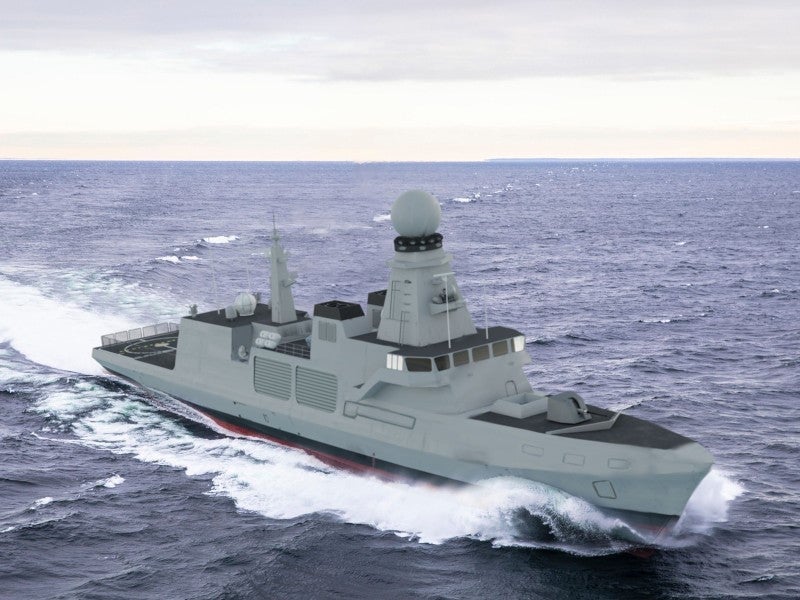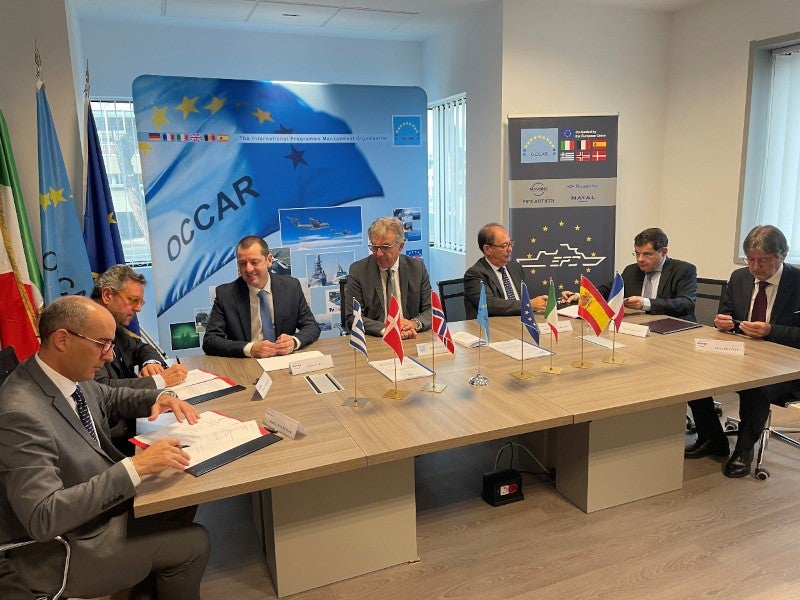The European Patrol Corvette (EPC) Programme is a collaborative effort aimed at developing new corvette-class vessels capable of executing a wide array of future missions.
The initiative involves European Union (EU) navies and members of the Permanent Structured Cooperation (PeSCo) project. Five navies – Italy, France, Spain, Greece and Norway – have officially joined the EPC project, while Romania, Ireland and Portugal are participating as observers.
The first phase of the EPC programme will focus on developing the modular and multi-role patrol corvette (MMPC).
In October 2023, the Organisation for Joint Armament Cooperation (OCCAR) finalised contractual agreements for the MMPC. The agreements were signed with a consortium led by Naviris, a 50/50 joint venture owned by shipbuilding firms Fincantieri and Naval Group, and Navantia, along with participants from Greece, Denmark and Norway.
OCCAR is responsible for overseeing the entire project, acting as the granting authority appointed by the European Commission (EC) and the contracting authority appointed by the participating member states.
European Patrol Corvette design and features
The EPC vessel is expected to be approximately 110m long and weigh 3,000t. It is designed to replace several classes of ships in the future.
The project will initially feature two primary versions: the long-range multipurpose (LRM) vessel and the full combat multipurpose (FCM) vessel.
Both versions will leverage innovations, synergies and cross-fertilisation from three European shipbuilding firms to address the operational needs of various navies. These vessels will be developed in various configurations through the addition of modular platform weapon systems.
The vessels will be adaptable, interoperable and capable of performing a broad spectrum of missions tailored to the specific needs of each navy. These missions include high-seas surveillance with a high degree of autonomy and law enforcement or sovereignty affirmation operations closer to shore.
European Patrol Corvette development details
The MMPC Programme originally began as the EPC project with the signing of a letter of intent between the Italian and French navies in June 2019. In 2021, the EC launched a call known as MMPC CALL 1 (first phase).
The first phase focuses on design, technological development and the establishment of common working methodologies. It will deliver concept and feasibility studies, as well as the preliminary design for a new class of naval vessels.
For this call, Naviris led the development of a proposal by bringing together the expertise of a European consortium. In July 2021, the proposal was awarded by the EC and a contribution agreement was signed between the EC and OCCAR in December of the same year. The proposal was selected in July 2022 to receive funding from the European Defence Fund (EDF) and co-funding from the participating states.
OCCAR began the integration process for the MMPC Programme, following the signing of the programme management authorisation in October 2022. The contractual documents, including the grant agreement and the linked procurement contract, were signed in October 2023.
In November 2023, the consortium submitted a new industrial proposal to the EC for evaluation. This proposal aims to establish a potential new cooperative contract to be finalised by OCCAR by 2025.
Phase one funding
The initial phase of the EPC project, valued at €87m ($92.3m), is supported by the EC through the EDF.
Of the total funding, €60m ($63.7m) will be provided by the EC as grants, with the remaining €27m ($28.6m) contributed by member states Denmark, France, Greece, Italy, Norway and Spain.
Phase two details
In May 2024, an industry proposal submitted by a consortium of three European shipyards, along with Naviris and Hydrus from Greece in November 2023 was selected by the EC for the MMPC CALL 2 (second phase).
The new phase of the programme, spanning four years (2025-2029), aims to finalise the critical design review and complete the development phase by producing at least two prototypes including one for each version of the FCM and LRM.
For MMPC Call 2, the EC selected the proposal for a maximum EDF budget of €154.5m ($164.07m).




